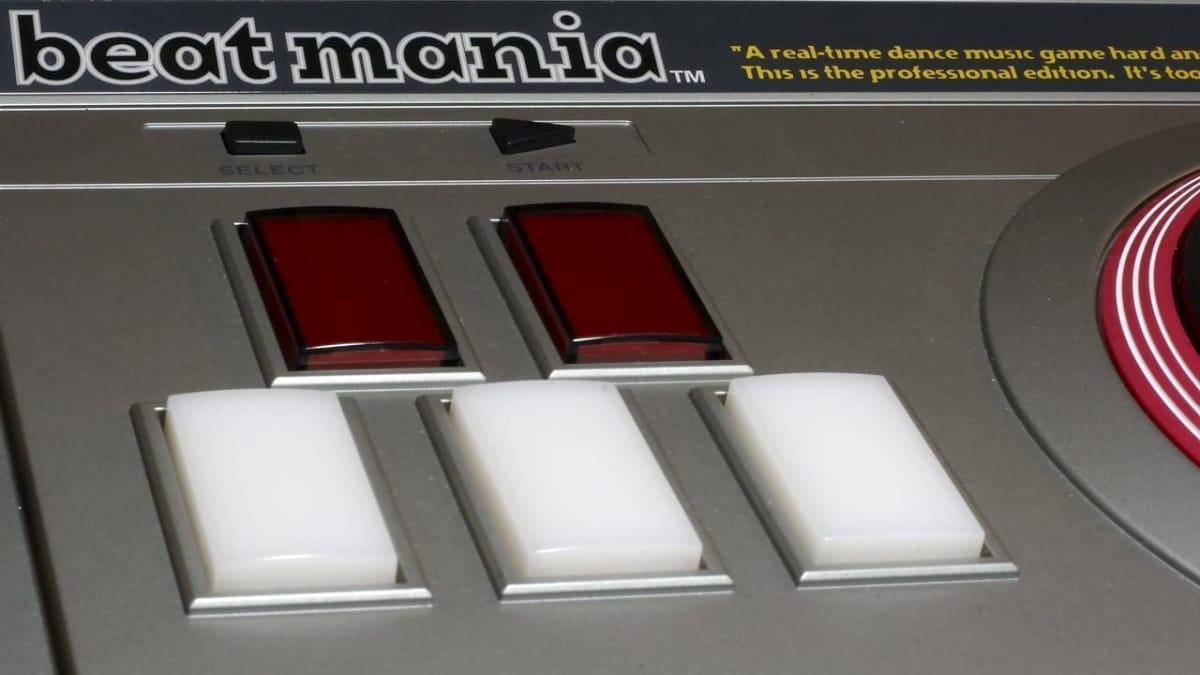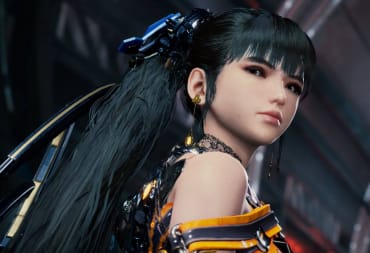A long-standing patent for Konami's Beatmania arcade series expired at the end of July, opening the door for similar arcade games once more. The patent covered light and sound effects playing when a button on the Beatmania machine was pressed, as well as other sound-game related features. Initially filed in 1998, it largely restricted development of other "sound games," for fear of patent infringement. With the expiration of the patent, we could very well see a resurgence of musical arcade games.
If you haven't been in an arcade recently, or don't have access to a Beatmania machine, Beatmania is a rhythm game where you press buttons according to prompts, set to the beat of the music. Advertised as a "DJ simulation," it comes with a faux turntable to spin and five buttons to push. As you might imagine, Beatmania prides itself on the variety of songs included, and the difficulty and skill required to pass the songs. There are numerous Beatmania spinoffs, the most famous of which is Beatmania IIDX, which added two more buttons and higher difficulty modes.
https://www.youtube.com/watch?v=8vL-24kkiq4
Konami has a long history of aggressively defending and litigating its intellectual properties, and Beatmania is no exception. Back in 1998, Japanese developer Jaleco announced plans to produce a similar musical arcade game, titled VJ: Visual and Music Slap. Noting the similarities to Beatmania, Konami filed an injunction with the Tokyo District Court, with Jaleco filing a counter-injunction less than a month later. Jaleco's injunction was for a quiz game released in 1994, but Konami took aim at Jaleco's recently released Rock Tread, as well as Namco's Guitar Jam. Konami and Namco settled in June 2000, with Jaleco settling its cases in December the same year.
VJ: Visual and Music Slap would later appear at Tokyo Game Show in 2000, but as Jaleco had settled with Konami, it appears as though the machines were pulled from arcades. Jaleco would also go on to be absorbed into Pacific Century CyberWorks Japan that same year and has since produced very few games. You may also recall that Konami attempted to sue Harmonix over Rock Band and associated patents, though the case was later settled amicably.
Less so were the cases where Konami sued Roxor over In the Groove in 2005, and Pentavision over the DJMax series in 2008. With In the Groove, Konami successfully argued that since it was technically just a modified version of Dance Dance Revolution, it violated their intellectual property rights. Subsequently, Konami won the rights to In the Groove, and all production ceased. Konami's lawsuit against Pentavision, however, argued that DJMax copied elements of Beatmania, despite the fact that DJMax wasn't available in arcades at the time. Much like Roxor, Pentavision settled with Konami out of court, transferring the Japanese sale rights of DJMax to Konami. Additionally, Pentavision now has to pay a fee to Konami for every DJMax game released. Pentavision later reformed as Neowiz MUCA, and while it looked like they weren't going to release any further DJMax games, they released DJMax Respect last year.
Still, even with Konami's grip on the rhythm arcade game industry loosened, it will likely be some time before we see any real innovation from other companies. As the days of rhythm games are largely behind the West, it's hard to say if developers will ever take advantage of the opportunity. Japan's rhythm game industry has shifted towards "idol" games, Idolmaster and Vocaloid games chiefly among them. It will be interesting to see what, if any, developers jump on the chance now that Konami's patent has expired.







